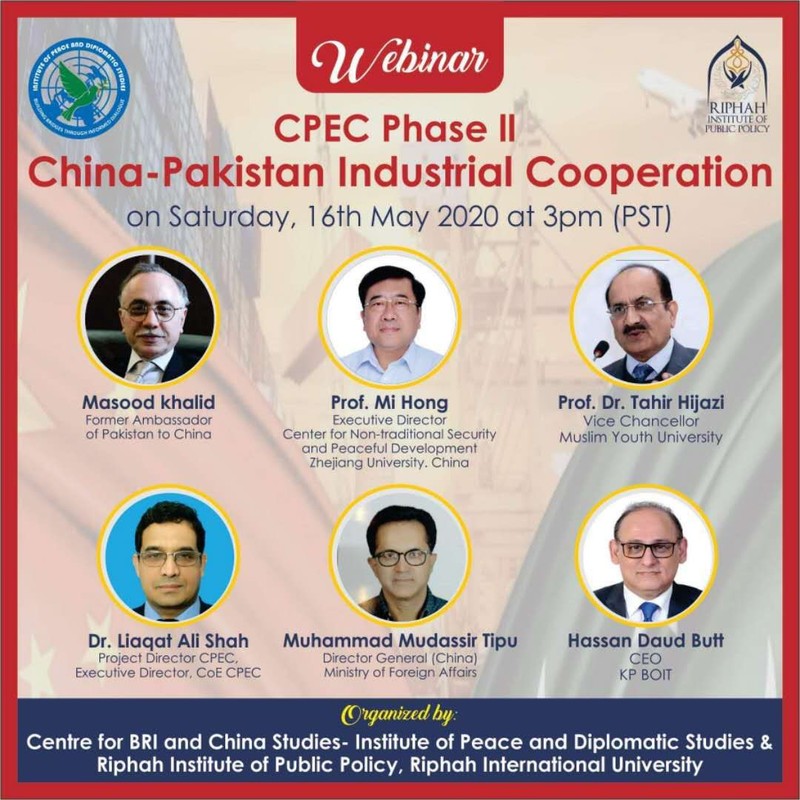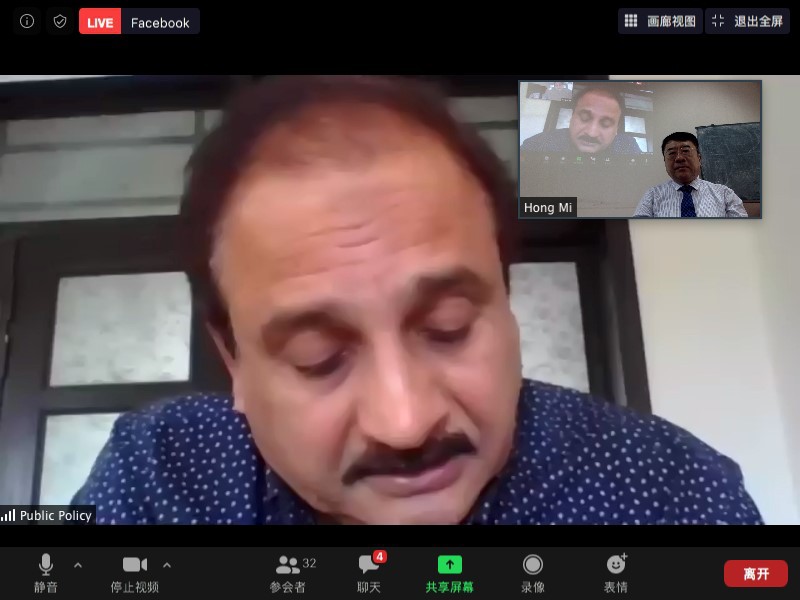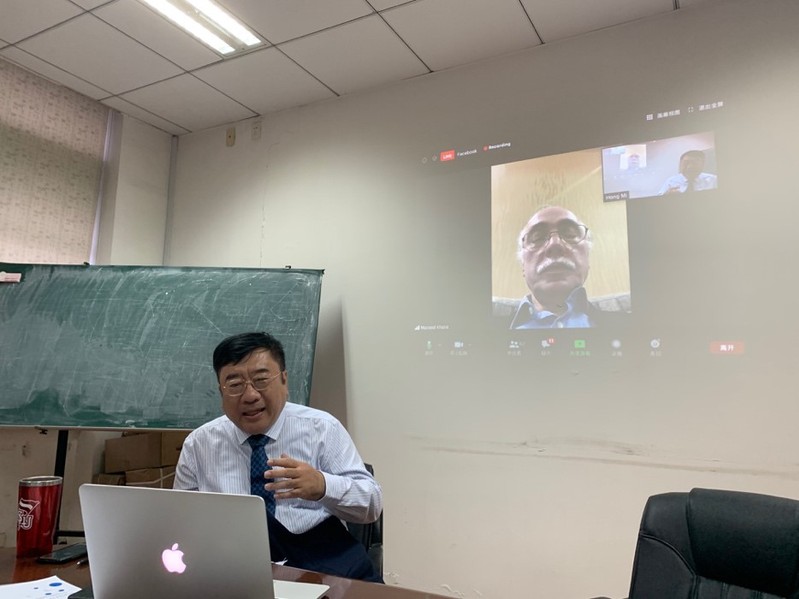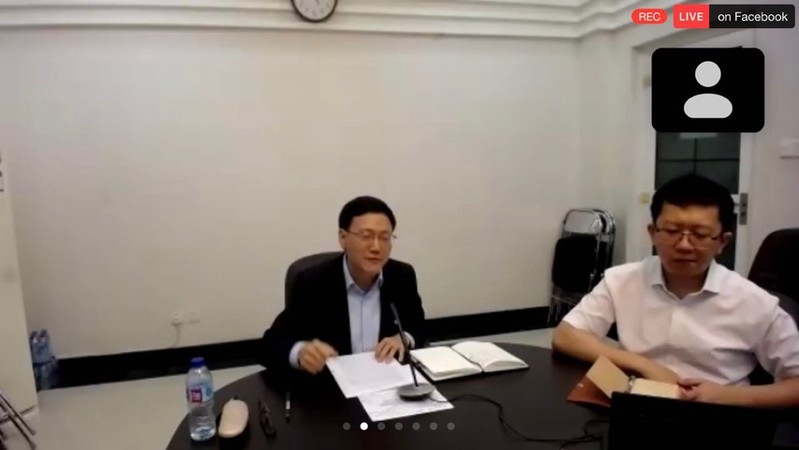At 6 p.m. of 16 May, 2020, Dr. Hong MI, Professor of Department of Social Security and Risk Management of Zhejiang University, Executive Director of Institute for Population and Development Studies and Deputy Director of Center for Non-Traditional Security & Peaceful Development Studies, was invited to participate in the International Webinar on “CPEC PHASE II: CHINA-PAKISTAN INDUSTRIAL COOPERATION” held by Center for BRI and China Studies- Institute of Peace and Diplomatic Studies & Riphah Institute of Public Policy, Riphah International University. In the webinar, Prof. Hong MI gave a topic speech on “Investment Strategy and Social Development Direction of CPEC Industrial Cooperation”.

Participants of the webinar are Former Pakistan Ambassador to China Mr. Masood Khalid, Vice Chancellor of Muslim Youth University Dr. Tahir Hijazi, Executive Deputy Director of CoE-CPEC Dr. Liaqat Ali Shah, Director General (China) of Pakistan Ministry of Foreign Affairs Mr. Muhammad Mudassir Tipu, Chinese Consul General in Karachi Mr. Bijian LI, CEO of KP BOIT Mr. Hassan Daud Butt and etc. More than 30 experts and scholars participated in the International Webinar together.
Pakistan experts reviewed the historical development course of CPEC, pointing out that China is one of the few countries which invests in developing countries/regions, and 50% of international students in China are from developing countries. A number of Pakistan experts and scholars agreed with the concept of mutually beneficial and win-win development, thinking China makes great efforts to narrow the economic gap and to promote a balanced development among counties. In the meantime, they reached a consensus that cooperation should be vigorously explored and that short-term as well as long-term development plans should be made in order to further the development of CPEC in the Phase II.

Prof. Hong MI pointed out in the topic speech that the cooperation of CPEC had stepped from the first stage of the construction of infrastructure which can be summarized as “hard connection” into the “soft mechanism”. Prof. MI suggested multiple subjects should be encouraged to participate in the CPEC industrial cooperation. For example, the strategy of Yiwu model, which can be described as “Government builds stage, enterprises dance” can be popularized in the CPEC areas. In 2018, Mardan, a city of Pakistan, obtained a rocky development in social economy by mimicking Yiwu’s small commodity market. With further development of CPEC as well as rapid process of urbanization, the intensity and frequency of population activities would increase dramatically. With the local population and the family migrants, CPEC will probably has a convergence of more than 3 million people in the future, posing a threat to the management of investment, education and public health, bringing great challenges to the safety of water-energy-food supplies system. In view of the above aspects, Professor Mi Hong proposed to build a cooperative response system for major public health incidents, a cooperation mechanism between China-Pakistan universities and vocational schools, and the establishment of China-Pakistan Economic Corridor Agricultural Insurance Company.

Prof. HI's report was highly recognized by the experts, triggering the question of how to make the policy more sustainable from the perspective of security. Mr. Bijian LI, Chinese Consul General in Karachi, affirmed the investment strategy innovation proposed by Prof. MI. He also believed that safety is the prerequisite for population agglomeration and industrial development. In the end, the moderator summarized the significance, focus, mechanism, and path of the CPEC cooperation in the Phase II, and firmly believed that this webinar is of great significance for China and Pakistan to share the achievements of development for a better future.

(Press release from QiyiniMA)


